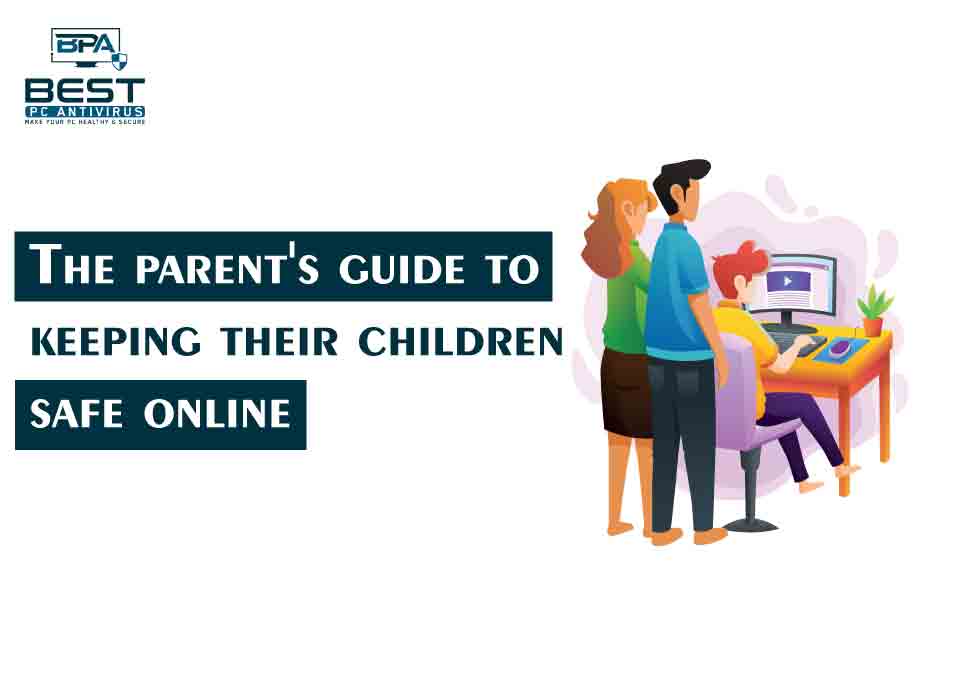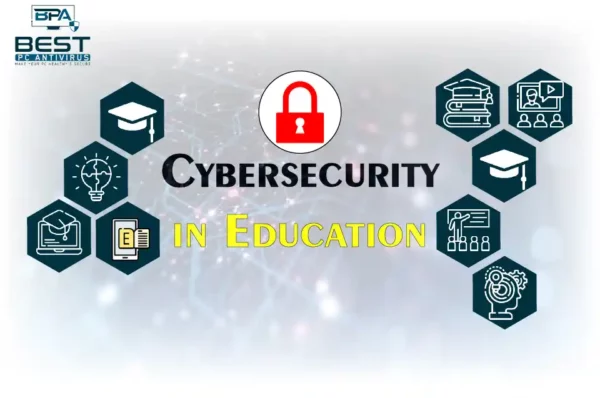Parenting in the digital age can be challenging, especially when it comes to ensuring the online safety of children. With the internet becoming a ubiquitous part of children’s lives, it’s important for parents to be informed and proactive in protecting their kids from online dangers, such as online bullying, exposure to inappropriate content, and identity theft. Here is our advice to parents, and our parent’s guide to keeping their children safe online.
Why is it important for Parents to Keeping Their Children Safe Online?
It is important for parents to keep their children safe online for several reasons:
- Protecting their privacy and personal information: Children may not understand the consequences of sharing personal information online, making them vulnerable to online predators and identity theft.
- Preventing exposure to inappropriate content: The internet is full of inappropriate, harmful, or age-inappropriate content that children should not be exposed to.
- Protecting against online bullying and harassment: Children may become victims of online bullying and harassment, which can have serious consequences for their mental and emotional health.
- Promoting responsible and ethical use of technology: By teaching children how to use the internet safely and responsibly, parents can help shape their attitudes towards technology and how they engage with it.
- Ensuring their well-being: Keeping children safe online helps ensure their overall well-being, by minimizing their exposure to potential harm and promoting positive online experiences.
What Parent’s First Step should be to Keeping Their Children Safe Online?
Educate yourself about the potential dangers of the internet and the different forms of online predators and scams. Educating yourself should be the first step to keeping their children safe online. But exactly why should parents first Educate themselves about the potential dangers of the internet and the different forms of online predators and scams to protect their children online? It is important for parents to educate themselves about the potential dangers of the internet and different forms of online predators and scams because:
- Awareness of the risks: By understanding the various types of online threats, such as cyberbullying, phishing scams, and child exploitation, parents can take the necessary steps to protect their children.
- Keeping up with technology: Technology is constantly evolving, and it is essential for parents to stay informed about new online dangers and how they can impact their children.
- Making informed decisions: By educating themselves about online safety, parents can make informed decisions about the type of content and websites their children have access to, and how they can use parental controls and privacy settings to keep their children safe.
- Lead by example: By demonstrating their own commitment to online safety, parents can encourage their children to also prioritize their own online safety.
- Empowerment: By being informed and aware, parents can feel more confident in their ability to keep their children safe online and help them navigate the online world.
Digital Dangers for Children Pointed Out by the UNICEF 2017
- ICTs have amplified traditional dangers (bullying, for example) and created new forms of child abuse and exploitation, such as made-to-order child sexual abuse material, self-generated content, and the broadcasting of live sex abuse.
- Cryptocurrencies, end-to-end encrypted platforms, and the Dark Web facilitate the escalation of live streaming and present real challenges for law enforcement.
- Children are disproportionately affected by online dangers, including loss of privacy. They are less likely to understand the risks and more likely to suffer harm. This particular vulnerability sheds light on when risk turns into actual harm for children.
- Since 2012, an estimated 100 million children, most from Africa and South-East Asia, have connected to the internet for the first time. Without proper safeguards, the world’s most disadvantaged children will face even greater risk when exposed to the online risk of harm.
Set clear rules for internet use and enforce them consistently.
Setting clear rules for internet use and enforcing them consistently can help parents keep their kids safe online in several ways:
- Creating structure: By establishing clear guidelines, children know what behavior is expected of them and are less likely to engage in risky activities online.
- Building trust: Consistently enforcing rules helps build trust between parents and children and shows children that their parents care about their well-being.
- Minimizing screen time: By setting limits on the amount of time children spend online, parents can reduce the risk of exposure to harmful or inappropriate content and promote healthy habits.
- Promoting responsible behavior: Rules for internet use can emphasize the importance of responsible and ethical behavior online, such as not sharing personal information, avoiding cyberbullying, and being cautious about what they click on or download.
- Monitor your child’s online activity, including their social media accounts and the websites they visit.
Monitoring your child’s online activity, including their social media accounts and the websites they visit, can help parents keep their kids safe online in several ways:
- Awareness of activity: By monitoring their child’s online activity, parents can be aware of what their child is viewing, who they are interacting with, and what personal information they are sharing.
- Detecting potential danger: Monitoring can help parents detect any potential danger or red flags, such as cyberbullying, exposure to inappropriate content, or attempts at grooming by online predators.
- Encouraging open communication: By monitoring their child’s online activity, parents can encourage open communication with their child and offer guidance and support as needed.
- Setting a positive example: Monitoring their child’s online activity sets a positive example for responsible and ethical online behavior.
- Building trust: Monitoring online activity can help build trust between parents and children, as children are more likely to be forthcoming about their online experiences when they know their parents are actively engaged in their online life.
- Keep the computer in a common area and limit the amount of time spent on the internet
Keeping the computer in a common area and limiting the amount of time spent on the internet can help parents keep their kids safe online in several ways:
- Increased visibility: By keeping the computer in a common area, parents can have a clear view of what their child is doing online, reducing the risk of exposure to harmful or inappropriate content.
- Reduced screen time: Limiting the amount of time spent on the internet can help reduce the risk of exposure to harmful or inappropriate content and promote healthy habits.
- Encouraging other activities: Limiting time spent on the internet can encourage children to participate in other activities and engage with the world around them.
- Fostering healthy habits: By limiting the amount of time spent on the internet, parents can help their children develop healthy habits and promote balance in their lives.
- Promoting family interaction: By keeping the computer in a common area, parents can promote family interaction and encourage their children to engage in conversation and activities together.
- Teach your children to never share personal information, such as full name, address, phone number, or financial information online
Teaching children never to share personal information, such as full name, address, phone number, or financial information online, can help parents keep their kids safe online in several ways:
- Protecting privacy: By not sharing personal information online, children can protect their privacy and reduce the risk of identity theft, online fraud, and other forms of cybercrime.
- Reducing the risk of grooming: By not sharing personal information, children are less likely to be targeted by online predators seeking to groom or exploit them.
- Building responsible habits: Teaching children to protect their personal information can help them develop responsible and ethical habits that will serve them well in all aspects of their lives.
- Promoting safety: By not sharing personal information, children can reduce their risk of exposure to harmful or inappropriate content, and promote a safer online experience.
- Fostering trust: By teaching children to protect their personal information, parents can foster trust and build a relationship based on open communication and mutual respect.
- Explain to them the importance of being cautious when accepting friend requests or clicking on links from unknown sources
Explaining to children the importance of being cautious when accepting friend requests or clicking on links from unknown sources can help parents keep their kids safe online in several ways:
- Raising awareness: By educating children about the potential risks of accepting friend requests or clicking on links from unknown sources, they will be more likely to exercise caution and think before they act.
- Encouraging responsible behaviour: Children are more likely to act responsibly online when they understand the importance of being cautious and the potential consequences of their actions.
- Building critical thinking skills: By encouraging children to think critically about the information they encounter online, they will be better equipped to identify and avoid potential dangers and scams.
- Promoting privacy: Educating children about the importance of protecting their personal information and being cautious with who they share it with will help them maintain their privacy and security online.
- Fostering trust: By educating children about online safety and encouraging them to exercise caution, parents can foster trust and build a relationship based on open communication and mutual respect.
- Encourage open communication with your child about their online experiences and encourage them to come to you if they encounter anything upsetting or inappropriate
Encouraging open communication with your child about their online experiences and encouraging them to come to you if they encounter anything upsetting or inappropriate can help parents keep their kids safe online in several ways:
- Building trust: By fostering open communication and encouraging children to come to you if they encounter anything upsetting or inappropriate, parents can build trust and establish a relationship based on mutual respect and support.
- Addressing concerns early: Encouraging children to come to you if they encounter anything upsetting or inappropriate will help parents address concerns early and take steps to mitigate potential risks.
- Offering guidance and support: By encouraging open communication, parents can offer guidance and support to help children navigate the challenges of the online world.
- Promoting healthy habits: Encouraging open communication can help children develop healthy habits and promote balance in their lives.
- Building resilience: By encouraging children to come to you if they encounter anything upsetting or inappropriate, parents can help build their resilience and empower them to navigate the challenges of the online world.
- Use privacy settings and parental controls to block inappropriate content, limit screen time, and monitor their online activities
Using privacy settings and parental controls to block inappropriate content, limit screen time, and monitor their online activities can help parents keep their kids safe online in several ways:
- Blocking inappropriate content: Parental controls can be used to block access to inappropriate websites, images, and videos, reducing the risk of exposure to harmful or inappropriate content.
- Limiting screen time: Parental controls can be used to set limits on the amount of time children to spend on the internet, helping to promote a balanced and healthy online experience.
- Monitoring online activities: Parental controls can be used to monitor children’s online activities, including their social media accounts and the websites they visit, allowing parents to identify and address any potential concerns early.
- Promoting safety: By using privacy settings and parental controls to limit access to inappropriate content and monitor online activities, parents can promote a safer online experience for their children.
- Encouraging responsible behavior: By setting boundaries and monitoring children’s online activities, parents can encourage responsible behavior and help children develop healthy habits.
- Reinforce positive online behavior and encourage your child to use technology responsibly, ethically, and safely
Reinforcing positive online behavior and encouraging your child to use technology responsibly, ethically, and safely can help parents keep their kids safe online in several ways:
- Promoting healthy habits: Reinforcing positive online behavior and encouraging children to use technology responsibly, ethically, and safely can help promote healthy habits and a balanced online experience.
- Encouraging responsible behavior: By reinforcing positive online behavior and encouraging responsible use, parents can help children develop healthy habits and make responsible choices when using technology.
- Offering guidance and support: By reinforcing positive online behavior and encouraging responsible use, parents can offer guidance and support to help children navigate the challenges of the online world.
- Building resilience: By reinforcing positive online behavior and encouraging responsible use, parents can help build children’s resilience and empower them to navigate the challenges of the online world.
- Fostering a positive online culture: Reinforcing positive online behavior and encouraging responsible use can help foster a positive online culture and promote healthy online habits for children and families.
FAQs
What is the most important step for parents to keep their children safe online?
Educating themselves about the potential dangers and forms of online predators and scams is the most important step for parents to keep their children safe online.
Why is it important for parents to set clear rules for internet use?
Setting clear rules for internet use is important because it helps establish boundaries and promotes responsible online behavior.
How can monitoring your child’s online activity help keep them safe?
Monitoring your child’s online activity helps keep them safe by allowing parents to identify and address any potential concerns early, such as exposure to inappropriate content or contact with online predators.
What is the benefit of keeping the computer in a common area?
Keeping the computer in a common area can help parents keep their children safe online by allowing them to supervise and monitor their online activities more easily.
Why is it important to teach children to never share personal information online?
Teaching children to never share personal information online is important because it can help protect their identity and prevent them from becoming victims of scams or online predators.
Children Safe Online
Read More : Mental health and your online life




